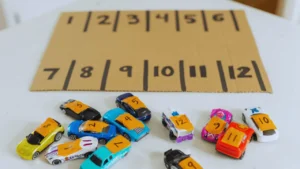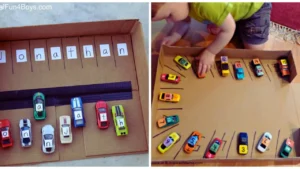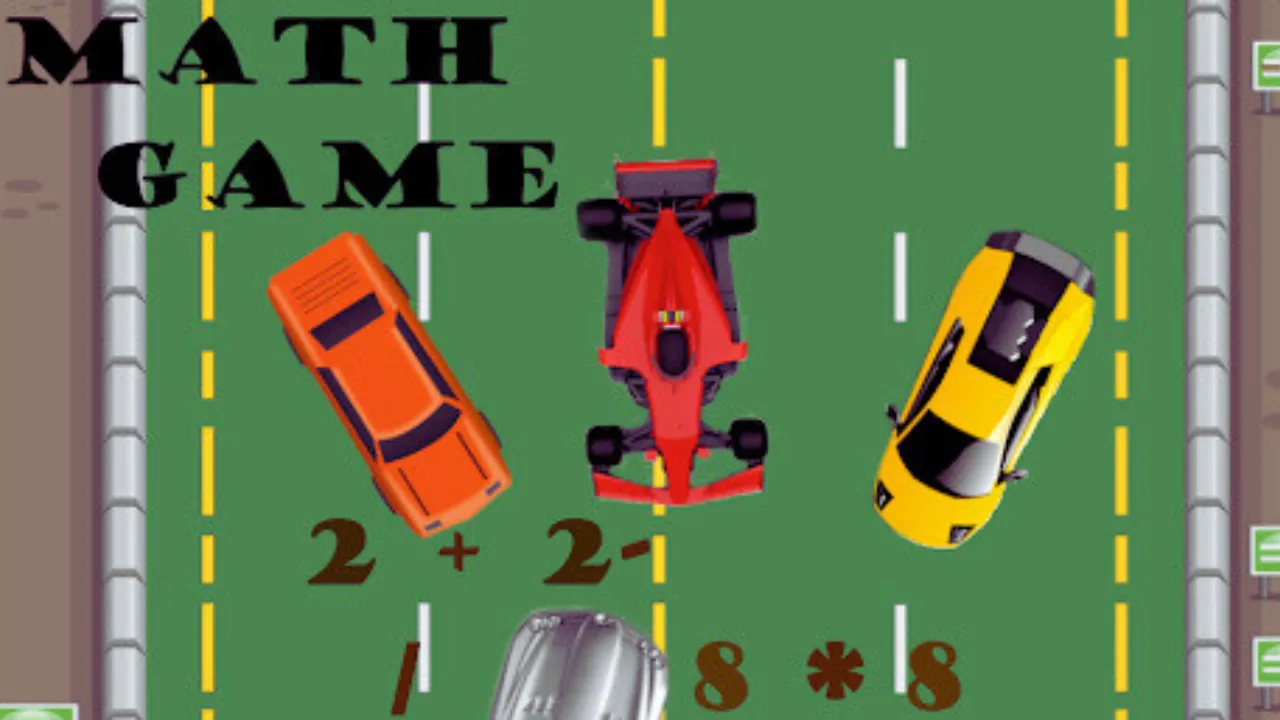Kids today are excited about fast-paced games, and when you combine that excitement with education, really amazing things happen. That’s what Math Playground car games do particularly well. They put math in motion – and not in some dry, boring, pedagogically approved way, either. These games engage kids’ attention through the concept of motion; kids drive through math challenges, steer through math problems, and earn points through equations. It’s not just playtime, and it isn’t just math class; it’s something in between, and that is how it can successfully work. These games weren’t designed to be just entertaining.
Everything from the obstacles to rewards it contains is directly related to real math practice. Addition and subtraction, and yes, even time and shapes, engage kids during math gameplay. While racing, a child might be quickly answering how many wheels they need for the vehicle, or they may be choosing the best speed boost by answering a multiplication response. That is learning in motion, and it’s subtle and not forced. That’s the type of thing folks want to return to, not because they have to, but because they want to.
How Racing Games Are Teaching Kids to Think Fast and Learn Faster

When you think of math, you probably don’t picture a race track. But that’s changing fast, especially for kids. Today’s learners are mixing logic with speed, turning numbers into part of the fun. Math playground car games are quickly becoming a favorite way for children to enjoy math in a playful, energetic way. They’re not only playing, they’re calculating, solving, and building quick-thinking habits without even realizing it.
Why Car Games Work Better Than Worksheets

Children love to move, think fast, and feel like they’re in control. That’s why traditional methods often lose their attention. But math playground car games are built differently. They combine vibrant visuals with time-based challenges that reward accuracy. Instead of filling out a paper, students must answer equations to get ahead, avoid crashes, or collect in-game rewards. It creates an emotional connection because the better they solve, the faster they go. And that feeling of progress? It’s addictive in a good way.
Real Play Meets Real Learning
These games aren’t just made for fun. They’re designed by educators and developers to strengthen math fundamentals. One minute you’re racing through a city, the next you’re solving multiplication to refuel your car. You don’t stop to think about it, your brain just responds. And that’s exactly the point. Games like these train mental math through repeated, timed exposure to concepts like division, pattern recognition, and even geometry.
The Types of Math You’ll Find in These Games
Let’s take a look at how real math skills are used inside different types of car game mechanics:
| Game Action | Math Involved | How It Helps You Play |
| Solving math before the pit stop | Subtraction or addition | Keeps the car moving, no fuel, no race! |
| Using speed boosts | Multiplication | The quicker you answer, the more turbo you get |
| Avoiding obstacles | Geometry (angles, shapes) | Turn right based on shape clues |
| Time countdown races | Estimation / Time conversion | Helps with reading and calculating the remaining time |
| Changing tires or tools | Matching/number patterns | Pick the correct options based on the equation results |
What’s New in 2025: Real-Time Game Events
This year, one of the biggest updates to math playground car games is the addition of real-time events. Players can now join in weekly math challenges where the top scores get featured on a leaderboard, no registration needed. These events encourage kids to log in regularly, and parents say it’s a great way to motivate daily math time. Also, custom avatars have been added, letting players design their racer using points earned by solving problems, not money.
Why Teachers Are Turning to Digital Learning Races
More schools are going digital for at least part of the day. That means kids need screen-based learning tools that are still meaningful. Math playground car games check both boxes: fun and educational. A recent teacher survey showed that over 60% of elementary teachers who used the games in class saw improvement in math fluency in just four weeks. It’s not just entertainment, it’s a classroom strategy.
Make the Most of Math Car Games at Home
- Set a goal: For example, “Win three races by solving 20 math questions.”
- Sit beside your child and cheer them on — or race with them if there’s a two-player mode.
- Use a notebook to track improvements over time. This keeps kids motivated when they see progress.
Behind the Scenes: How These Games Are Built
Not many players think about this, but car games on math platforms go through months of testing. Developers work with teachers, child psychologists, and curriculum experts to make sure the games fit age-appropriate learning stages. Sound effects, color changes, and even road design are planned to trigger both interest and focus. It’s this balance of psychology and fun that makes these games so effective, and kids never notice how much work went into it.
Why This Learning Model Works So Well
Let’s be real, no one learns well when they’re bored. These games wake up the brain. Kids are challenged to react fast, but with logic. Every turn, every math checkpoint, creates a cause-and-effect system that rewards knowledge. The immediate feedback loop (right or wrong) also helps with memory. That’s why more parents are choosing game-based math as a supplement to homework, not just a break from it.
Looking Ahead: What’s Next for Math Playground Games?
Developers have hinted at upcoming updates, including seasonal world maps (desert, jungle, snow-covered roads) and mini boss races where players must answer tougher math in tight time windows. A classroom tournament mode is also being tested, allowing teachers to create custom race codes for entire classes to join a shared race from home or school. These kinds of improvements show that math playground games are not standing still; they’re speeding ahead.
Final Thoughts
Math playground car games are changing the game literally. By turning numbers into fuel, puzzles into pit stops, and logic into winning strategies, kids are learning with joy. This generation of students doesn’t just memorize math; they race through it, solve it under pressure, and smile while doing it. That’s what learning should look like. And right now, it’s happening one digital racetrack at a time.
FAQs
How often are new games added to the Math Playground site?
New games are added monthly, often timed around holidays or school terms to keep content fresh.
Can students play these games in school?
Yes, many schools include Math Playground games during class breaks or computer lab periods.
Are these games competitive?
Some include time-based scores or racing opponents, but most focus on individual improvement.
What devices work best for these games?
Laptops or tablets work best. Some games are touch-responsive, which helps younger players.
Are parents involved in these games, too?
Absolutely. Some parents use these games as after-school enrichment, while others even race their kids.
How do the games handle difficulty levels?
They adapt. Easier questions show up first, but as players win races, the math becomes more advanced.
Is the internet always required to play?
Yes, these are online browser games, but no downloading or sign-in is needed.




